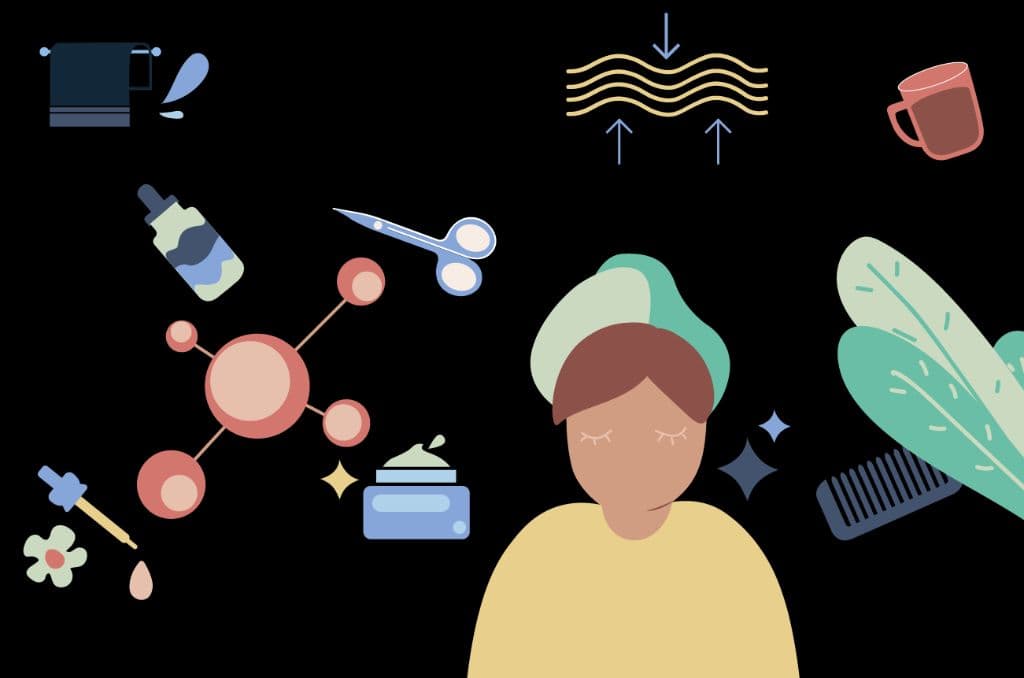This article has been compiled by Alipta Jena (https://www.linkedin.com/in/alipta)
That annoying itchy rash that has been leaving your skin blemished and you irritated? Do not worry for it can be easily treated with a few careful measures and a trip to your dermatologist.
Eczema or Dermatitis is a skin condition characterized by dry, red, itchy, and cracked rashes.
It can be a long term condition that can sometimes run in the family. The good thing is that it is not contagious, which means it will not spread from one person to another just by coming into direct contact with the person who has the rash.
There are different types of Eczema depending on the cause, the shape of the rash, or the part of the body which is being affected.
How common is it?
It is a very common condition and the incidence is on a rise. It can affect both children as well as adults.
What are the causes of eczema?
Most of the time, it is difficult to find a triggering factor. However, the most common causes are the irritants and the allergens in our environment.
These can range from anything and everything ranging from things that are used on a daily basis like soaps, detergents, perfumes, cosmetics to allergens like house dust, mites, pets, or woolen clothes that we use.
Sometimes it could be a food item triggering a rash or coming in contact with a natural substance like juices from fruits and vegetables can also lead to eczema.
Sometimes changes in climate can also cause eczema, winter being the most common time of the year where we see a surge of patients coming in with skin allergies and eczema.
Underlying infection or even stress may act as a risk factor for the flare-up of eczema. Hence, finding an exact cause can be challenging.
Symptoms of Eczema
In acute form or when the symptoms of the disease start off, one may experience redness, dryness, itching, scratch marks, swelling, and flaking of the skin.
We can also see blisters at times.
In chronic, a persistent form, we see thickening and darkening of the skin due to constant rubbing and scratching to relieve the itch.
How do we manage Eczema?
Managing eczema depends upon the symptom and severity. Treatment of eczema helps in relieving the symptoms and dealing with flare-ups.
A few simple measures can help to manage the symptoms and minimize flare-ups to a great extent-
- Using a moisturizer to help relieve the dryness and itching is an essential part of management. It is also important to moisturize your skin at least two to three times a day.
- Preferably use a mild fragrance-free moisturizer.
- Avoid scratching the rash. Even though scratching can provide some immediate short term relief from the itch, it can lead to infection and increase inflammation by damaging the already disrupted skin barrier.
- You can cut your fingernails short which can help from getting scratch marks, also consider using hand gloves if there is itching. In case of eczema on the hands, wearing gloves can also act as an occluder and increase absorption of the applied topical agents which can help in increasing hydration of your skin.
- Medications like antihistaminics / anti-itch/ anti-allergic can help in relieving itching. These must be prescribed by a dermatologist.
- The most important thing to remember would be to avoid anything that worsens or triggers the symptoms.
- For example, avoid exposure to harsh chemicals, cosmetics, soaps, detergents; avoid any exposure to extremes of temperature or use of woolen clothes
- While bathing or washing, you can limit your time in the shower to about 10 to 15 minutes and use lukewarm water. Multiple eczema friendly body washes and soaps are also available over the counter for your use.
- Avoid any body wash, shampoo, soaps that might be a cause of your symptoms. After bathing, avoid a moisturizer on your damp skin which will help to trap the moisture inside the skin.
- Your dermatologist can give you creams and emollients to clear up the rash.
- If it is severe, oral medications can be used to clear up the flare-up and it can assist in the long-term management of your condition.
Eczema? Take care!
Eczema can be challenging for your psychological as well as emotional well being.
Itching which is one of the main features of eczema can be minor or at times it can be severe enough to interfere with your daily routine, including your work as well as sleep.
It can have a huge impact on both your personal as well as professional life.
Hence, it is important you consult a dermatologist if any symptoms are affecting your day-to-day life and prior to trying any treatments or creams
Also, stress and anxiety are common triggers that can cause eczema to flare up.
This can lead to more stress and anxiety and thus, this is a vicious cycle.
Thus, it is important to follow certain important strategies for cutting down stress and reducing your anxiety, using relaxation therapies which will help to cope better with this condition.
Your skin is going to be the most precious garment you will ever own, so take good care!

